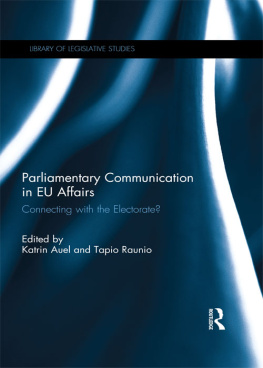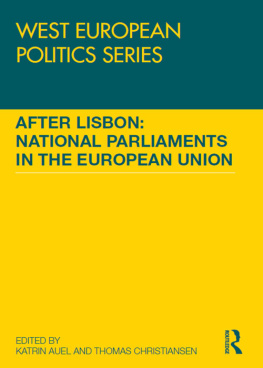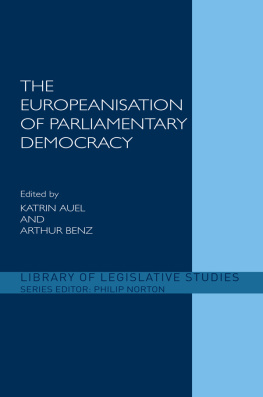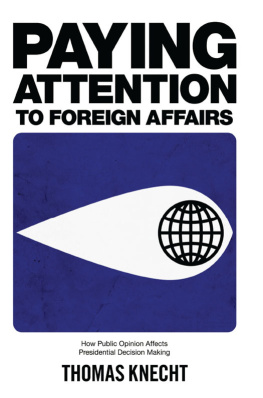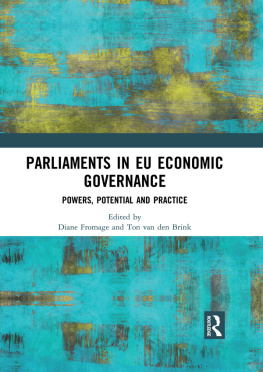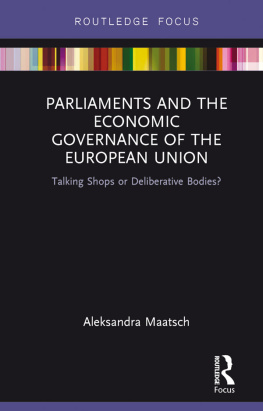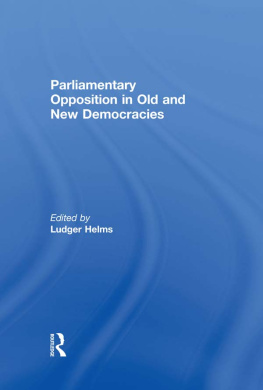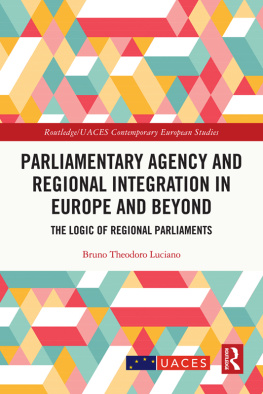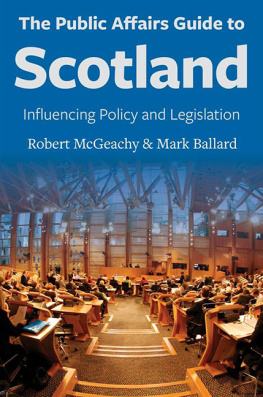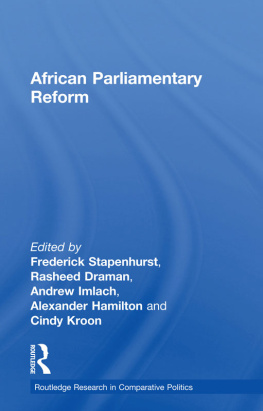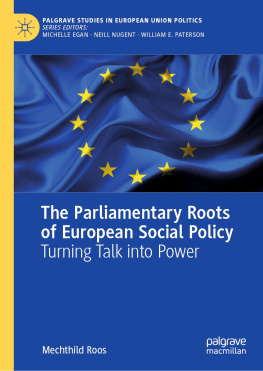Parliamentary Communication in EU Affairs
Over the last twenty years, the role of national parliaments in EU affairs has gained considerable academic attention. Much of the literature, however, has focused on parliamentary scrutiny and control in EU affairs. What tends to be generally overlooked is that the parliamentary communication function is at least as important in EU politics as the control function. Democratic legitimacy depends on a vibrant public debate on political solutions and alternatives to allow citizens to make informed political (electoral) choices and to exercise democratic control. Within the EU, it is precisely the opacity of policy-making processes and the lack of public discourse that have been defined as core problems of democratic legitimacy. Here, parliaments have the potential to provide an ideal arena for the deliberation of important European issues and thus to help overcome the much lamented distance between European policy processes and the citizens. Yet, despite parliaments central relevance for the legitimacy of European politics, the parliamentary communication function remains so far under researched. The volume aims at filling this gap by providing both qualitative and quantitative comparative data on various communication efforts by national parliaments.
This book was originally published as a special issue of The Journal of Legislative Studies.
Katrin Auel is Associate Professor at the Institute for Advanced Studies, Vienna, Austria, and an associate member of the Centre dtudes Europennes at Sciences Po, Paris, France. Her research focuses on Europeanisation, legislative studies, and multilevel governance (EU, German federalism). She is especially interested in the role of national parliaments in the European Union.
Tapio Raunio is Professor of Political Science at the University of Tampere, Finland. His research interests include the role of national legislatures and parties in European integration, the European Parliament and Europarties, Nordic politics and the Finnish political system.
Library of Legislative Studies
Edited by Lord Philip Norton of Louth, University of Hull, UK.
National Parliaments & the European Union
Edited by Philip Norton
The New Parliaments of Central & Eastern Europe
Edited by David M. Olson an Philip Norton
Members of Parliament in Western Europe
Edited by Wolfgang C. Muller and Thomas Saalfield
The New Roles of Parliamentary Committees
Edited by Lawrence D. Longley and Roger H. Davidson
Conscience and Parliamant
Edited by Philip Cowley
Parliaments & Governments in Western Europe
Edited by Philip Norton
Parliaments and Pressure Groups in Western Europe
Edited by Philip Norton
Parliaments in Asia
Edited by Philip Norton and Nizam Ahmed
The Uneasy Relationship between Parliamentary Members and Leaders
Edited by Lawrence D. Longley and Reuven Yair Hazan
Delegation and Accountability in European Integration
Edited by Torbjorn Bergman and Erik Damgaard
Second Chambers
Edited by Nicholas Baldwin and Donald Shell
Parliaments and Citizens in Western Europe
Edited by Philip Norton
The Rise of the Norwegian Parliament
Edited by Hilmar Rommetvedt
The Unseen Hand
Edited by Rinus van Schendelen and Roger Scully
The Scottish Parliaments
Edited by David Arter
From Legislation to Legitimation
The Role of the Portuguese Parliament
Edited by Cristina Leston-Bandeira
Cohesion & Discipline in Legislature
Edited by Reuven Y. Hazan
Southern European Parliaments in Democracy
Cristina Leston-Bandeira
Executive Leadership & Legislative Assemblies
Edited by Nicholas Baldwin
The Europeanisation of Parliamentary Democracy
Edited by Katrin Auel and Arthur Benz
Comparing and Classifying Legislatures
Edited by David Arter
The Peoples Congresses and Governance in China
Toward a Network Mode of Governance
Edited by Ming Xia
Post-Communist and Post-Soviet Parliaments
The Initial Decade
Edited by Philip Norton and David M. Olson
The Internet and Parliamentary Democracy in Europe
A Comparative Study of the Ethics of Political Communication in the Digital Age
Edited by Xiudian Dai and Philip Norton
Parliamentary Opposition in Old and New Democracies
Edited by Ludger Helms
Post-Communist Parliaments
The Second Decade
Edited by David M. Olson and Gabriella Ilonszki
Ceremony and Ritual in Parliament
Edited by Shirin M. Rai
The Roles and Function of Parliamentary Questions
Edited by Shane Martin and Olivier Rozenberg
Post-Communist Parliaments Change and Stability in the Second Decade
Edited by David M. Olson and Gabriella Ilonszki
Parliaments and Citizens
Edited by Cristina Leston-Bandeira
Legislatures of Small States
A Comparative Study
Edited by Nicholas D.J. Baldwin
Parliamentary Communication in EU Affairs
Connecting with the Electorate?
Edited by Katrin Auel and Tapio Raunio
First published 2015
by Routledge
2 Park Square, Milton Park, Abingdon, Oxon, OX14 4RN, UK
and by Routledge
711 Third Avenue, New York, NY 10017, USA
Routledge is an imprint of the Taylor & Francis Group, an informa business
2015 Taylor & Francis
All rights reserved. No part of this book may be reprinted or reproduced or utilised in any form or by any electronic, mechanical, or other means, now known or hereafter invented, including photocopying and recording, or in any information storage or retrieval system, without permission in writing from the publishers.
Trademark notice: Product or corporate names may be trademarks or registered trademarks, and are used only for identification and explanation without intent to infringe.
British Library Cataloguing in Publication Data
A catalogue record for this book is available from the British Library
ISBN 13: 9780415815383
ePub eISBN 13: 9781317618706
Mobipocket/Kindle eISBN 13: 9781317618690
Typeset in Times New Roman
by RefineCatch Limited, Bungay, Suffolk
Publishers Note
The publisher accepts responsibility for any inconsistencies that may have arisen during the conversion of this book from journal articles to book chapters, namely the possible inclusion of journal terminology.
Disclaimer
Every effort has been made to contact copyright holders for their permission to reprint material in this book. The publishers would be grateful to hear from any copyright holder who is not here acknowledged and will undertake to rectify any errors or omissions in future editions of this book.

